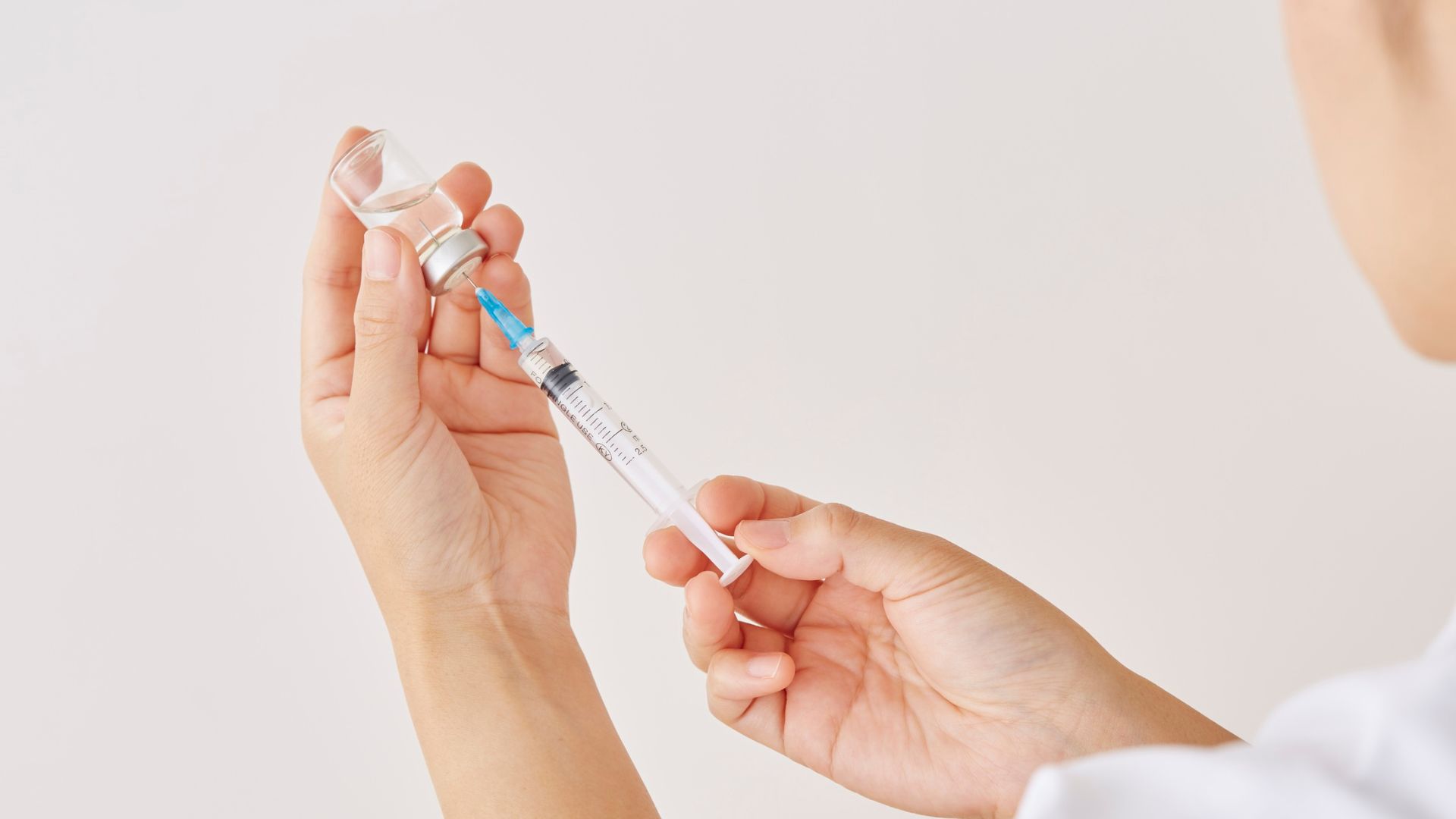In the pursuit of optimal health and well-being, bioidentical hormones have emerged as a compelling alternative to traditional hormone replacement therapies. This blog delves into the science behind bioidentical hormones, which are designed to mimic the body’s natural hormones at a molecular level.
We will explore how these hormones can help alleviate symptoms of hormonal imbalances, such as fatigue, mood swings, and weight gain, thereby improving overall quality of life. Insights from medical experts and testimonials from individuals benefiting from bioidentical hormone therapy will shed light on its potential to unlock vitality and enhance longevity. Join us as we unravel the myriad benefits and considerations of including bioidentical hormones in your health regimen.

Understanding the Basics of Bioidentical Hormones
What Are Bioidentical Hormones?
Bioidentical hormones are compounds that are chemically identical to the hormones naturally produced by the human body. They are often derived from plant sources, such as soy and yam, and modified in a laboratory to match human hormones at a molecular level. The goal of bioidentical hormone therapy (BHT) is to restore hormone balance and mirror the body's natural processes more closely than traditional synthetic hormone replacement therapies.
How Do Bioidentical Hormones Work?
Bioidentical hormones work by replenishing the body's hormone levels to alleviate symptoms associated with hormonal imbalances. When administered, these hormones bind to hormone receptors in the body, initiating the same responses as the natural hormones would. This method is believed to offer a more natural response and potentially fewer side effects compared to synthetic hormones.
Common Types of Bioidentical Hormones
The most commonly used bioidentical hormones include estrogen, progesterone, and testosterone. Each of these hormones plays a crucial role in maintaining various bodily functions. Estrogen and progesterone are often used to treat symptoms of menopause in women, such as hot flashes and vaginal dryness. Testosterone therapy is used in both men and women to address issues such as fatigue, decreased libido, and muscle weakness.
Methods of Administration
Bioidentical hormones can be administered in several forms, including creams, gels, pills, patches, and injections. The method of delivery often depends on the individual's specific medical needs and lifestyle preferences. Each form has its own advantages and potential drawbacks, which should be discussed with a healthcare provider.
Potential Benefits
Individuals undergoing BHT have reported numerous benefits, including enhanced energy levels, better mood stability, improved sleep quality, and reduced symptoms of menopause. By addressing hormonal imbalances, bioidentical hormones may also contribute to healthier aging and overall well-being.
Risks and Considerations
While bioidentical hormones are deemed to be more natural, they are not without risks. Potential side effects can include weight gain, blurred vision, fatigue, and mood swings. It is crucial to undergo thorough medical evaluation and monitoring by a qualified healthcare professional when considering BHT to ensure its safety and efficacy.
Understanding the basics of bioidentical hormones is the first step towards making an informed decision about incorporating them into your health regimen. With their potential to closely mimic the body's natural hormones, bioidentical hormones offer a promising alternative for those struggling with hormonal imbalances. However, it is essential to approach this therapy with careful consideration and professional guidance.
How Bioidentical Hormones Mimic Natural Hormones
Molecular Composition
The molecular composition of bioidentical hormones is key to how they mimic natural hormones. Unlike traditional synthetic hormones, which often have slight structural variations, bioidentical hormones are crafted to be exact replicas of the hormones your body produces naturally. This molecular precision allows them to interact seamlessly with your body's hormone receptors, eliciting the same physiological responses.
Hormone Receptor Binding
Hormone receptor binding is a critical aspect of hormone function. Bioidentical hormones are designed to fit perfectly into the body's hormone receptors, just like the body’s own hormones. This precise fit ensures that bioidentical hormones can effectively communicate with cells and initiate the same biological processes. This is believed to result in a more natural and balanced response compared to synthetic hormones, which may not fit the receptors as precisely.
Biological Function
Once bound to receptors, bioidentical hormones trigger the same cellular processes as natural hormones. For example, bioidentical estrogen will help regulate menstrual cycles, support bone density, and influence mood and energy levels, just as the body’s own estrogen would. This natural mimicry extends to other bioidentical hormones like progesterone and testosterone, which support a host of vital functions from reproductive health to muscle maintenance and mental clarity.
Metabolism and Elimination
The body metabolizes and eliminates bioidentical hormones in the same manner as it does natural hormones. This is particularly important as it reduces the risk of accumulation and potential toxicity, which can be a concern with synthetic hormones that the body does not process as efficiently. The natural metabolic pathways ensure that bioidentical hormones are broken down and excreted, helping to maintain balance and reduce side effects.
Understanding how bioidentical hormones mimic natural hormones provides insight into their potential advantages. Their identical molecular structure, precise receptor binding, and natural biological functions collectively contribute to a treatment that aligns closely with the body's inherent processes. This can result in a more harmonious and effective approach to managing hormonal imbalances.
The Science Behind Bioidentical Hormone Therapy
Endocrinology Basics
Endocrinology is the field of medicine that focuses on the body's hormonal systems. At the heart of this discipline is understanding how organs like the thyroid, adrenal glands, pancreas, and reproductive organs produce, release, and regulate hormones. These chemical messengers are crucial for maintaining homeostasis, influencing everything from metabolism and growth to mood and energy levels.

Hormone Synthesis
Bioidentical hormone therapy (BHT) involves the use of hormones that are structurally identical to those produced naturally by the human body. These bioidentical hormones are synthesized from plant compounds, specifically diosgenin found in soybeans and wild yams. These compounds undergo a series of chemical transformations to convert them into molecules that are indistinguishable from endogenous human hormones.
Pharmacokinetics and Pharmacodynamics
Pharmacokinetics refers to how the body absorbs, distributes, metabolizes, and excretes a drug or hormone. Bioidentical hormones are designed for optimal absorption and efficiency, ensuring they are effectively utilized by the body. Pharmacodynamics, on the other hand, refers to the biochemical and physiological effects of these hormones in the body. Bioidentical hormones mimic the body's natural hormonal responses, thereby maintaining their efficacy and minimizing adverse effects.
Clinical Studies and Research
Numerous clinical studies have examined the efficacy and safety of bioidentical hormones. Research indicates that BHT can be effective in managing symptoms of hormonal imbalances and may offer advantages over synthetic alternatives due to its natural composition. However, the scientific community continues to evaluate its long-term safety and effectiveness. Ongoing studies aim to provide more robust data to support the widespread use of BHT.
Individual Response Variability
It is essential to recognize that individual responses to bioidentical hormone therapy can vary significantly. Factors such as genetic makeup, existing health conditions, and lifestyle can influence how one responds to BHT. Personalized medical assessments and ongoing monitoring are critical to optimize treatment outcomes and minimize risks.
Understanding the science behind bioidentical hormone therapy offers valuable insights into its potential benefits and limitations. Knowledge of endocrinology, hormone synthesis, pharmacokinetics, and clinical research provides a comprehensive understanding that informs both medical practitioners and patients considering this treatment.
Addressing Hormonal Imbalances with Bioidentical Hormones
Identifying Hormonal Imbalances
Hormonal imbalances can manifest in a wide array of symptoms, including fatigue, mood swings, weight gain, insomnia, and reduced libido. Diagnosing these imbalances typically involves a combination of medical history review, symptom evaluation, and comprehensive lab tests. Blood, saliva, and urine tests can measure levels of key hormones such as estrogen, progesterone, testosterone, cortisol, and thyroid hormones.
Personalized Treatment Plans
Once a hormonal imbalance is identified, medical practitioners can develop a personalized treatment plan using bioidentical hormones. The treatment plan is tailored to meet the specific needs of the individual, addressing the particular hormonal deficiencies or excesses. Dosages and hormone types are carefully calibrated to restore balance and alleviate symptoms.
Modes of Administration
Bioidentical hormones can be administered through various delivery methods based on patient preference and medical advice. Common modes of administration include oral capsules, topical creams and gels, sublingual tablets, and hormone pellets inserted under the skin. Each method has its own set of advantages and considerations, allowing for a customized approach to treatment.
Monitoring and Adjusting Therapy
Ongoing monitoring is crucial for the success of bioidentical hormone therapy. Regular follow-up appointments and periodic lab tests help ensure that hormone levels remain within optimal ranges. Adjustments to the treatment plan may be necessary based on the patient’s response, symptoms, and any side effects that arise. This dynamic approach ensures that the therapy remains effective and well-tolerated.
Lifestyle Considerations
In addition to bioidentical hormone therapy, lifestyle changes can play a significant role in addressing hormonal imbalances. A balanced diet, regular exercise, adequate sleep, stress management, and avoiding environmental toxins can support hormonal health. These lifestyle modifications can complement BHT, leading to more sustainable and holistic well-being.
Potential Benefits and Risks
Bioidentical hormone therapy offers several potential benefits, including relief from menopausal symptoms, improved mood and energy levels, enhanced libido, and better overall quality of life. However, it is essential to be aware of the risks and side effects, which may include weight changes, mood fluctuations, and others. Medical professionals must weigh these factors when recommending and managing BHT.
Addressing hormonal imbalances with bioidentical hormones can provide a more natural and balanced approach to hormone replacement therapy. By combining personalized treatment plans, ongoing monitoring, and lifestyle changes, patients can achieve optimal outcomes and improve their overall quality of life.
The Role of Bioidentical Hormones in Enhancing Energy Levels
Understanding Energy Deficits
Energy deficits can arise from a variety of factors, including stress, poor sleep, nutritional deficiencies, and hormonal imbalances. When hormones such as thyroid hormones, cortisol, and sex hormones (estrogen, progesterone, and testosterone) are out of balance, it can lead to chronic fatigue and a significant reduction in energy levels.
Impact of Thyroid Hormones
Thyroid hormones play a crucial role in regulating metabolism, which directly influences energy production. Hypothyroidism, a condition characterized by low levels of thyroid hormones, can lead to symptoms such as fatigue, lethargy, and weight gain. Bioidentical thyroid hormone replacement can help restore normal thyroid function, thereby enhancing metabolic processes and boosting energy levels.
Role of Cortisol
Cortisol, often referred to as the stress hormone, is vital for maintaining energy levels, especially during periods of stress. Chronic stress can lead to adrenal fatigue, resulting in low cortisol levels and persistent tiredness. Bioidentical cortisol replacement therapy can help normalize cortisol levels, improving the body's ability to manage stress and sustain energy throughout the day.
Influence of Sex Hormones
Sex hormones, including estrogen, progesterone, and testosterone, significantly impact mood, energy, and overall vitality. Declines in these hormones, particularly during menopause and andropause, can lead to fatigue and decreased stamina. Bioidentical hormone replacement therapy (BHRT) can replenish these hormone levels, thereby improving energy, enhancing mood, and restoring a sense of vitality.
Personalized Approach to Therapy
A tailored approach is essential when addressing energy deficits with bioidentical hormones. Medical practitioners must evaluate individual hormone levels and symptoms to develop a customized treatment plan that effectively targets specific imbalances. This personalized approach ensures that each patient receives the most appropriate and beneficial treatment.
Complementary Lifestyle Modifications
In addition to bioidentical hormone therapy, adopting healthy lifestyle practices can further enhance energy levels. Regular physical activity, a balanced diet, adequate hydration, and proper sleep hygiene are vital components of a holistic approach to managing energy deficits. These lifestyle changes, combined with BHRT, can lead to sustained improvements in energy and overall well-being.
Monitoring and Adjusting Treatment
Ongoing monitoring is crucial to ensure the effectiveness and safety of bioidentical hormone therapy. Regular follow-up appointments and laboratory tests allow for adjustments to the treatment plan based on the patient's response and any emerging symptoms. This dynamic management strategy helps maintain optimal hormone levels and energy balance.

By addressing the hormonal roots of energy deficits and integrating lifestyle modifications, bioidentical hormone therapy offers a promising solution for enhancing energy levels and improving quality of life.
Reclaim Your Vitality with Biote Hormone Pellet Therapy
Hormone imbalance can lead to complex health effects such as stress, exhaustion, sleep disturbance, cognitive function disruption, and more. Biote helps balance hormones using bioidentical hormone replacement therapy (BHRT), using very small pellets, about the size of a grain of rice, inserted under the skin. This delivery method allows bioidentical hormones, customized for your specific needs, to be released at the ideal rate and processed efficiently by the body. Biote hormone pellet therapy can help you feel your best and achieve hormonal balance.
Contact Us Today
Don't let hormonal imbalances affect your quality of life. Contact us today to learn how Biote hormone pellet therapy can help you regain your vitality and enhance your well-being. Our team of experts is here to provide personalized care and support on your journey to achieving optimal hormone balance. Reach out now to schedule your consultation and take the first step towards feeling your best.














